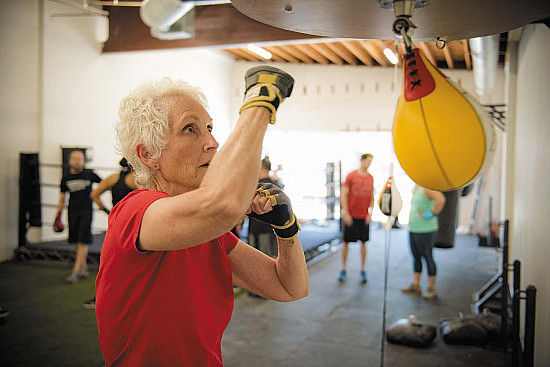How well do TV medical dramas portray heart disease?
These popular programs rely on health care experts — including Harvard doctors — to make sure the medical details are correct.
- Reviewed by Christopher P. Cannon, MD, Editor in Chief, Harvard Heart Letter; Editorial Advisory Board Member, Harvard Health Publishing

If you're among the millions of people captivated by TV medical dramas, you might wonder how accurately these shows depict heart-related problems and their treatment. As with almost everything on the small (and big) screen, timelines are often accelerated, and certain aspects may be dramatized to engage viewers. But by and large, the medical details are factual and authentic.
"Research shows that people tend to believe what they see on TV, so it's incredibly important to depict things accurately," says Dr. Neal Baer, co-director of the Media, Medicine, and Health program and a lecturer on Global Health and Social Medicine at Harvard Medical School. Dr. Baer, who was executive producer of the acclaimed NBC medical drama ER for seven seasons, also serves on the advisory board of Hollywood, Health and Society (see "Connecting TV writers with medical experts").
Although ER premiered more than three decades ago, it was the most watched TV series on Hulu in February 2020. Fans of ER and similar shows (such as Grey's Anatomy, Chicago Hope, New Amsterdam, and The Resident) know that heart attacks and cardiac arrest are depicted fairly frequently.
Connecting TV writers with medical expertsHollywood, Health and Society (HH&S) is a program at the University of Southern California that provides the entertainment industry with current, accurate information about health and medicine. This free resource was founded in 2001 with a grant from the CDC, whose staff also offered their expertise for writers seeking advice on creating medically accurate shows. "The CDC really understood the importance of how popular culture influences the public's attitudes and behavior about health," says HH&S director Kate Folb. The organization maintains a database of thousands of experts (including some affiliated with Harvard Medical School) in health, medicine, and science who provide pro bono consultations on scripts and storylines. In addition to providing support for The Pitt and similar medical dramas (see main story), HH&S assists with a wide variety of other programs geared to kids, teens, and adults, ranging from animated series to soap operas. "We did a consultation with the NBC drama This is Us about a cardiac arrest. And for the CBS legal drama Bull, our expert reviewed the dialogue for an operating room scene involving a beating-heart mitral valve replacement procedure," says Folb. TV producers strive for medical accuracy not just because they care about their viewers but because it makes good financial sense. "They know their audiences are watching closely and hanging on to every word, and most viewers are on social media," says Kolb. Everyone has health issues, and many have or know someone with heart disease. So if something doesn't look or sound right on a show, people may challenge the accuracy of a specific scene and point out any errors online. "You might lose not just one viewer but all their social media contacts as well," Folb says. |
Responding to cardiac emergencies
If you or a family member has heart disease, seeing how emergency physicians treat these urgent conditions may help you know what to expect, says Dr. Baer. Anyone with a possible heart attack quickly receives an ECG (a test to assess the heart's electrical activity), a blood test to check for heart muscle damage, and maybe a baby aspirin, whereas a cardiac arrest usually warrants cardiopulmonary resuscitation (see "Need a push to learn CPR?" in the December 2024 Heart Letter).
"I wanted to portray the possible repercussions of CPR, so we did an episode with Noah Wyle [who played medical student John Carter on ER] where he resuscitates someone with CPR but breaks their ribs in the process and causes a lung puncture," says Dr. Baer. The new Max drama, The Pitt, which debuted in January 2025, also stars Noah Wyle, this time as a senior attending physician in an emergency department. Several episodes in the first season highlight CPR, including one with a patient who receives chest compressions from a mechanical CPR device and another with a discussion about situations in which defibrillation (delivering a shock to the heart) doesn't make sense.
Untold stories
Dr. Daniela Lamas, a pulmonary and critical care physician at Harvard-affiliated Brigham and Women's Hospital, was a writer on the Fox medical drama The Resident for four seasons. As a big fan of medical dramas (she's watched all 15 seasons of ER at least twice), she appreciates how ER and The Pitt portray the rapid interventions required during cardiac emergencies. But medical dramas aren't really able to convey the reality of living with a chronic condition such as heart failure, she notes. "As a physician who's also worked in long-term care, I'm interested in stories that don't end right after the procedure," she says. On TV, patients often wake up and all is well, but the stories of recovery — for example, going to cardiac rehab after a heart attack or recuperating after a heart transplant — are missing.
"But I think The Resident has done a good job of telling stories that raise the question of whether interventions are always the right thing to do," says Dr. Lamas. Doctors try to do the right thing for their patients, but incentives to do procedures or use devices can beat down that instinct. People need to be aware of that potential problem and ask questions about the benefits and risks of newer treatments, she says. "It can be really exciting to show a catastrophic medical event followed by a great save. But in real life, the story doesn't always play out that way. Sometimes, doing more isn't the best choice," she says.
Photo courtesy of MAX
About the Author

Julie Corliss, Executive Editor, Harvard Heart Letter
About the Reviewer

Christopher P. Cannon, MD, Editor in Chief, Harvard Heart Letter; Editorial Advisory Board Member, Harvard Health Publishing
Disclaimer:
As a service to our readers, Harvard Health Publishing provides access to our library of archived content. Please note the date of last review or update on all articles.
No content on this site, regardless of date, should ever be used as a substitute for direct medical advice from your doctor or other qualified clinician.
















